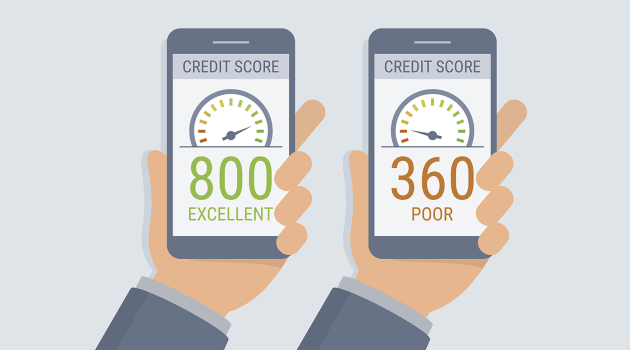Millions of Americans Receive a Boost to Their Credit Scores

If you've missed a rent payment, utility bill or library due date in the past three years, you might have noticed a bump to your credit score over the past few months.
This change is the result of a 2015 settlement the three major credit bureaus—TransUnion, Equifax and Experian—reached with New York attorneys, according to a new report released by the New York Federal Reserve. The bureaus agreed to alter the way they evaluate collections accounts when determining a person's credit score.
Among the findings in the report, 52% of collections accounts were associated with medical debts, 23% were associated with unpaid utility accounts and only 6% of were associated with a default on a loan offered by a financial institution—the factor most relevant to lenders.
How do collections accounts affect my credit score?
Your credit score is made up of several components, but the two largest factors are your current debt burden and your payment history. In the past, if you regularly made payments to your credit card company, mortgage lender or any other institution that had lent you money, those timely payments would positively impact your credit score. But if you missed a payment on one of your accounts and your creditor filed a collection account on behalf of that debt, your credit score was likely to go down.

But because there were inconsistencies in how debts were passed to collections, agencies, some individuals' credit scores were impacted by traffic tickets. Others were dinged for overdue library books and unpaid gym membership fees.
The 2015 settlement between the three credit bureaus and 31 state attorneys general overhauled the way credit reporting unfairly punished these individuals. As a result of this change, the number of Americans with a collections account on their credit report fell from 33 million down to 25 million.
How does this change affect me?
If you were one of the 8 million Americans affected by the change, you should expect to see a small but significant boost to your credit score. On average, impacted individuals received an 11-point increase to their score. Since the majority of people affected already had low credit scores to begin with (80% had a score below 660), this bump could be the difference between qualifying for a credit card or car loan and being rejected by the creditor.
One fifth of individuals who started with a score below 620 will see enough of a boost to bring their scores above that threshold. Eighteen percent of those affected will see their score increase by more than 30 points. This increase is substantial, but it largely applies to individuals with very low scores, so they'll still need to do some work to improve their credit scores.
If you've received a credit boost, commit to continuing to paying off your debts. Small steps, taken regularly, can help you build your credit score.
